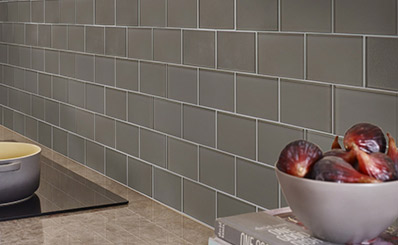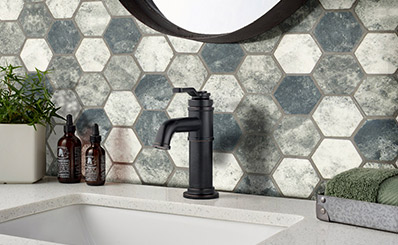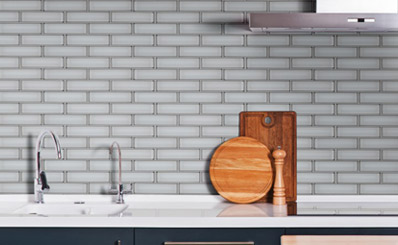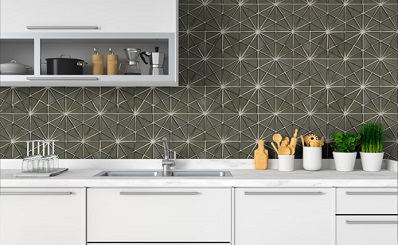Glass Tile Backsplash Collection
Glass tile adds luminosity and a clean modern sensibility to kitchens and bathrooms. MSI’s glass backsplash and glass mosaic tile lineup is a design favorite to enhance a wide range of interior and ex ...
Read MoreGlass Tile Backsplash Collection
Glass tile adds luminosity and a clean modern sensibility to kitchens and bathrooms. MSI’s glass backsplash and glass mosaic tile lineup is a design favorite to enhance a wide range of interior and exterior spaces. With its variety of sizes, shapes, iridescent colors and chic patterns, glass tile is a natural choice for kitchen backsplashes, shower surrounds, and commercial installations. With many collections and styles to choose from, MSI has the glass wall tile option that will fit any room and decor.
Glass Tile Backsplash Collection
Glass tile adds luminosity and a clean modern sensibility to kitchens and bathrooms. MSI’s glass backsplash and glass mosaic tile lineup is a design favorite to enhance a wide range of interior and ex ...
Read MoreGlass Tile Backsplash Collection
Glass tile adds luminosity and a clean modern sensibility to kitchens and bathrooms. MSI’s glass backsplash and glass mosaic tile lineup is a design favorite to enhance a wide range of interior and exterior spaces. With its variety of sizes, shapes, iridescent colors and chic patterns, glass tile is a natural choice for kitchen backsplashes, shower surrounds, and commercial installations. With many collections and styles to choose from, MSI has the glass wall tile option that will fit any room and decor.
- Home
- Backsplash & Wall Tile
- Glass Tile
Showing 0 of 0
“No Records found for the given search criteria”
Showing 0 of 0
Downloads
Videos
LEARN MORE ABOUT GLASS TILE
Can Glass Tile Withstand Wear and Tear?
Yes, glass tile is as durable as wall tile, backsplash tile, and swimming pool tile. Glass tile is non-porous, and glass tile is robust and suitable for use as wall tiles, backsplash tiles, and in swimming pools. Its non-porous nature ensures it doesn't soak up water or other liquids, making it ideal for areas such as kitchens and bathrooms. Additionally, it stands up well against stains and doesn't fade easily.
Glass Tile Cleaning and Removing Water Spots
Proper maintenance of glass tiles is essential for their longevity and shine. For regular cleaning, gently wipe with a soft cloth using a mix of mild detergent and warm water. To remove water spots, a solution of equal parts white vinegar and water can be sprayed on the spots, left for a few minutes, and then wiped off. Always dry the tiles with a lint-free cloth to prevent streaks. Avoid using abrasive tools or harsh chemicals like bleach or ammonia. While glass tiles are non-porous, it's advisable to periodically seal the grout lines to prevent moisture and stains.
Is Glass Tile a Good Choice a Shower?
Yes, glass tile is an excellent choice for shower walls. Its non-porous nature means it doesn't absorb water, making it resistant to mold and mildew. This quality, combined with its aesthetic appeal, makes it a popular choice for bathroom designs. When installed correctly with the appropriate adhesive and grout, glass tile provides a sleek, modern, and watertight surface for shower walls.
Can Glass Tile Be Used for Flooring?
It's less common to use glass tile on floors primarily because of its susceptibility to scratching. While glass tiles are durable in terms of moisture resistance, they can be more prone to surface scratches, especially in high-traffic areas. This can affect the tile's appearance over time. Additionally, some glass tiles can be slippery when wet, which could pose a safety concern on floors. Due to these reasons, while it's possible to use glass tiles on floors, they are more frequently chosen for walls, backsplashes, and other vertical surfaces. If someone opts to use them on floors, it's crucial to select tiles specifically designed for floor use and to be aware of the potential for scratching.
MSI's Variety of Glass Tiles
MSI boasts a diverse selection of glass tiles tailored to various design tastes and requirements. Among the standout styles are wood look glass tiles that mimic the appearance of natural wood, and glass subway tiles that exude a timeless and classic charm. For enthusiasts of intricate designs, there are options like chevron glass, herringbone, and hexagon glass tiles. MSI's Glass Tile Collection encompasses other unique patterns and a wide array of glass tile colors to suit any aesthetic.
Installation Instructions for Glass Tiles
Glass tile installation is not overly complicated, with proper instructions, it can be accomplished confidently. MSI's instructions for glass tile installation cover all the necessary steps, including preparing the area, cutting, and laying glass mosaics, grouting, and finishing touches. Click here for detailed guidance for installing glass tiles.
How to Seal Glass Tile
To seal grout around glass tiles, first, wait two to three weeks post-installation to allow any trapped moisture to escape. Pour the impregnating sealer into a dish, then use a foam paintbrush to apply it generously to the grout lines, starting from the top or back and moving downwards. After about ten minutes, wipe away any excess sealer from the glass and grout with a cotton cloth. This process ensures the grout is sealed while keeping the glass tiles streak-free.







